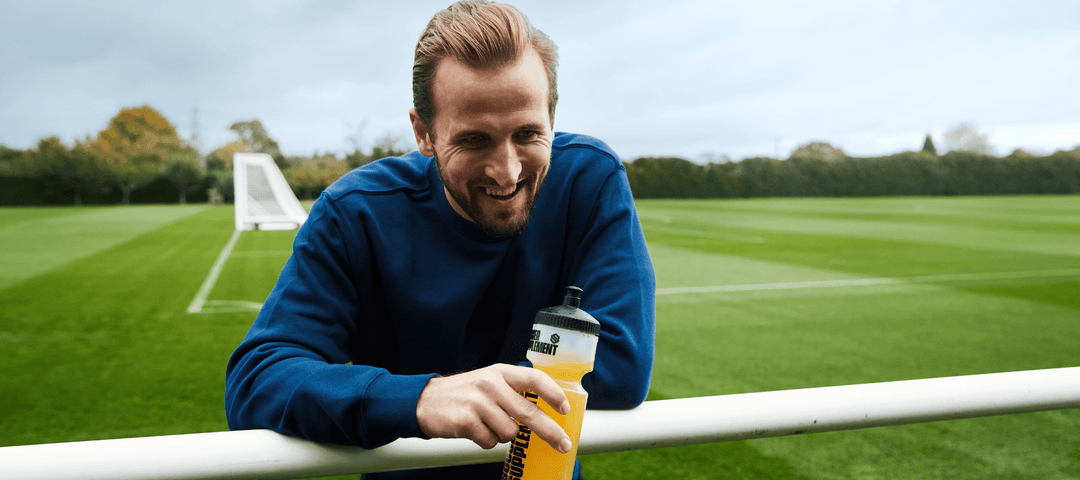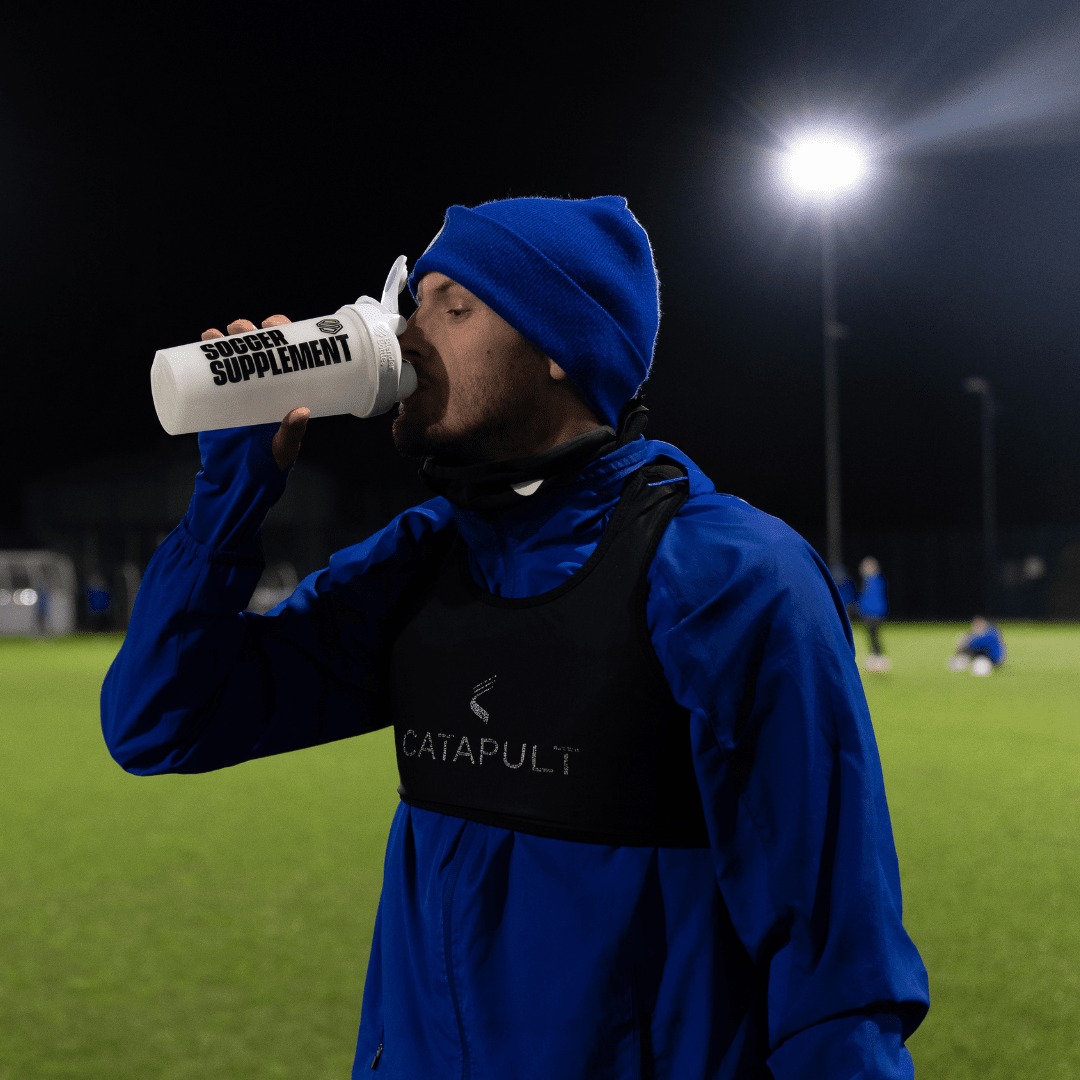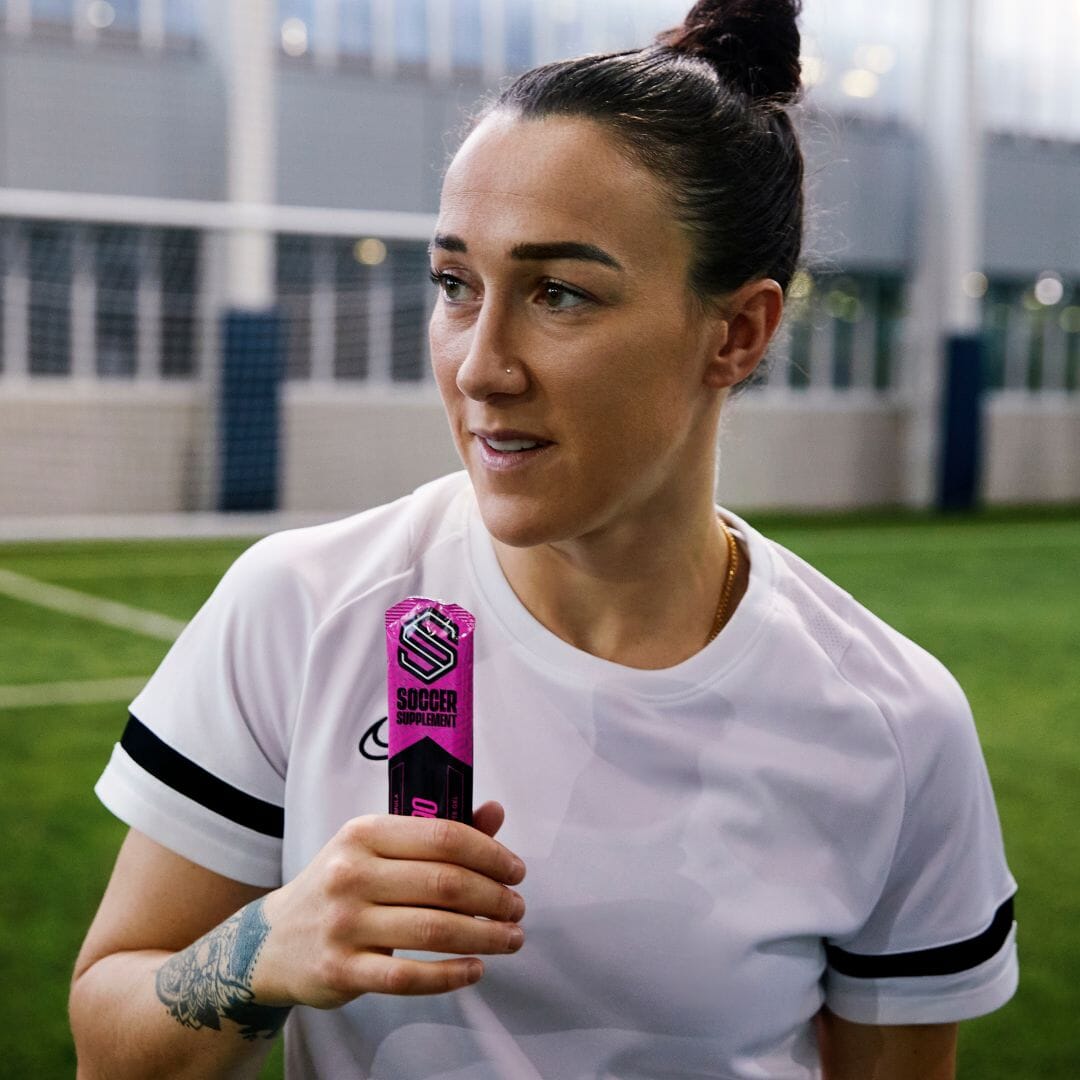We spoke with Matt Jones, football nutritionist at West Ham, for some guidance on the role of hydration during training and how to tailor hydration to the weather, your training routine, field position and body composition.
1. What happens if you don’t hydrate during an intense training session, or if you hydrate with just water?
Football performance during a match may be impaired when a player is dehydrated by as little as 2% of body weight. That is the equivalent of a 1.5 kg loss of body weight through sweat for a 75 kg player. Research has shown that dehydration to that extent can result in a 45% reduction in performance during high intensity actions commonly completed during a football match.
Dehydration can also impair endurance performance, so players will feel fatigued, especially in the second half of competition. Beyond the physical elements of the game, dehydration is also known to impact the brain and cognitive functions such as memory, attention and decision making.
Electrolytes are lost in sweat in varying quantities, mainly sodium and chloride, although potassium, magnesium and calcium are also present in much smaller quantities. The composition of sweat varies considerably from person to person. Although research has shown that elite level footballers lose between 1.1 and 3.2 grams of salt per hour depending on the intensity of training and the environmental conditions. Electrolytes allow for the transmission of various messages throughout the body so maintaining electrolyte balance is critically important.
Click here to read more about Electrolytes for Footballers
Consuming water only will replace the fluid lost in sweat, but it would not replace the electrolytes and thus may not be the optimal drink to consume to maximise or maintain performance.
We also know that carbohydrate intake of 30 – 60 grams per hour can be of great benefit to various aspects of football performance including fuelling intense actions such as sprints and jumps, maximising skill performance such as passing and shooting, and optimising cognitive functions such as decision making and focus.
While water maybe sufficient in training of low to moderate intensity, that lasts less than an hour, intense training over an hour or game play will most certainly require an electrolyte or carbohydrate-electrolyte drink such as Hydrate90®.

Click here to read more about Carbohydrate for Footballer Performance
2. How does training intensity differ from match intensity? Or should they be the same?
Training intensity should be periodised in a manner that allows for the progressive improvement in fitness and skill, while offering sufficient opportunity to recover from and prepare for games. Training should match, if not exceed match intensity at certain times in order to progressively overload the body and allow for adaptations and improvements in fitness to occur. These sessions typically occur 3 or 4 days prior to the next game, and a minimum of 3 days after the last game to allow for sufficient recovery.
However, consistently training at or above match intensity can increase the chances of injury and will ultimately impair performance.
3. How does body composition/weight affect the need to hydrate during training?
Research has shown that individuals with higher percentage body fat experience significantly higher core temperatures during exercise, but sweat rate is not significantly different. This ultimately suggests that individuals with higher body fat face a tough time regulating body temperature during exercise as they are not able to dissipate the extra heat via increased sweat rate.
4. How does weather affect the need to hydrate? How can you match your hydration to the weather?
A recent study conducted on professional players at FC Barcelona looked at the impact of environmental temperature and training intensity on sweat rate, sweat sodium composition and carbohydrate intake. Interestingly, sweat sodium composition was similar across all conditions, so a standard electrolyte sports drink for all events and environmental conditions is sufficient to maintain electrolyte balance.
That said however, sweat rate varied significantly from 0.55 to 1.43 L/hour from low intensity training in cool conditions (15 degrees), to high intensity training in warm conditions (29 degrees). That suggests, unsurprisingly, that the total volume of fluid you needed to maintain hydration status increases relative to the intensity of training and environmental conditions.
Interestingly, a side note from this research. Most players in this study were able to maintain hydration status by consuming enough fluid during training to prevent body mass losses greater than 2%, but they did not adjust carbohydrate intake to reflect training intensity. We know from other research that to maintain intense actions, skill and cognitive performance during intense training carbohydrate should be consumed at regular intervals, roughly 30 – 60 grams per hour.
Generally speaking, during intense training or hot weather, take Hydrate90®.

5. How does your position on the pitch affect your need to hydrate?
To my knowledge, there is no research comparing sweat rates of different playing positions, although theoretically the game demands of a modern full back or a box to box midfielder are considerably different to a goalkeeper. Positions exposed to greater intensities and physical demands will certainly sweat more and also require more carbohydrate to maintain those elevated intensities.
Click here if you would like to find our more about Hydration for Footballer Performance.
6. Should other nutrients be considered when training?
Research has shown that intense exercise that exceeds 70-minutes will benefit from the additional carbohydrate provided by Fuel90® and Hydrate90®. Training for less than 70-minutes should be adequately fuelled by a good pre-training, carbohydrate rich meal such as pasta, rice or porridge.

Click here to return to our main article about Football Training
Click here to shop our range of Footballer Hydration Supplements







